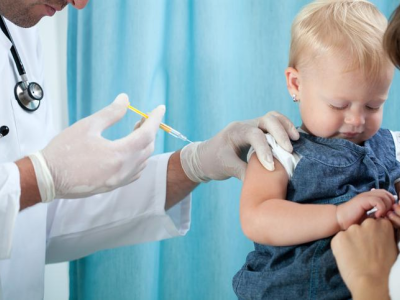Qatar reports MERS-CoV infection
Qatari health officials today announced a Middle East respiratory syndrome coronavirus (MERS-CoV) infection in a 48-year-old citizen, according to a report from the Kuwait News Agency (KUNA).
The Qatar Supreme Council of Health said the man has underlying health conditions and that tests on his close contacts have so far been negative, the report said. No other details were available about the case, which is the eighth one reported in Qatar.
The council also said another Qatari man who was recently diagnosed with MERS-CoV has recovered.
The latest case would raise the global MERS-CoV total to 155 cases, including 64 deaths.
Nov 8 KUNA report
White House: More than 800 food, feed inspections missed during shutdown
More than 800 food and feed safety inspections were deferred during the federal government shutdown in October, the White House Office of Management and Budget (OMB) said in a report released yesterday.
The report says the Food and Drug Administration (FDA) delayed close to 500 domestic food and feed inspections during the shutdown, and another 355 inspections that were due to be conducted by states under contract with the FDA also were skipped.
"The FDA also cut back on examination, sampling, and laboratory analysis of imported products during the shutdown," the report adds, without giving any numbers.
It says the FDA continued "for cause" inspections where there was an imminent public health threat, but it does not specify how many of those were carried out.
The report doesn't discuss how the shutdown affected the Centers for Disease Control and Prevention's (CDC's) investigations of foodborne disease outbreaks. CDC officials said during the shutdown that about 9,000 of the agency's 13,000 employees were furloughed. The CDC recalled some employees to help respond to a multistate Salmonella outbreak linked to Foster Farms chicken.
Nov 7 White House report
Oct 1 CIDRAP News story on shutdown
Oct 8 CIDRAP News story on Salmonella outbreak
NIH researchers launch genital herpes vaccine trial
The National Institutes of Health (NIH) today announced the launch of the first human trial of an investigational vaccine against genital herpes, one of the most common sexually transmitted diseases.
Currently, there is no vaccine for genital herpes, which infects about 776,000 people each year and exacts a heavy psychological and physical toll on those infected and poses a serious risk to babies born to infected mothers, the NIH said in a statement.
For the experimental vaccine, scientists removed two key proteins from herpes simplex virus type 2 (HSV-2), blocking its ability to multiply and cause genital herpes, according to the NIH. The vaccine, called HSV529, was developed by David Knipe, PhD, professor of microbiology and immunology at Harvard Medical School in Boston. Sanofi Pasteur manufactures the investigational vaccine, which has undergone 10 years of preclinical trials.
The phase 1 clinical trial involves 60 adults ages 18 to 40, including some who are already infected with HSV-1 and/or HSV-2. The trial is designed to test the vaccine's safety and immunogenicity. Researchers expect to complete it by October 2016.
Nov 8 NIH statement












